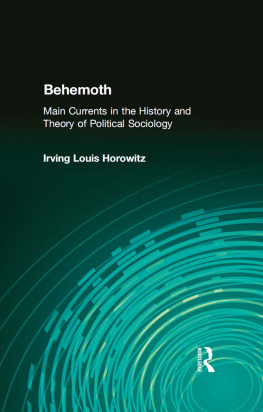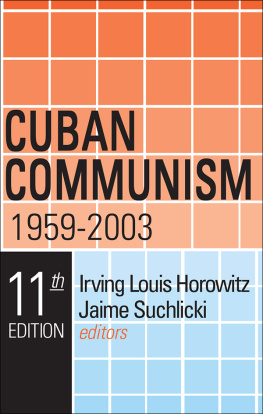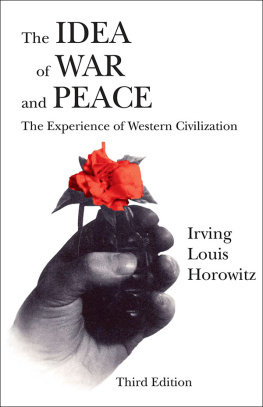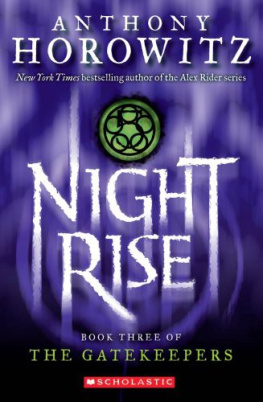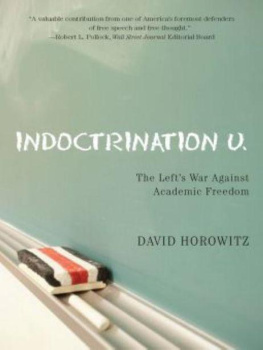
First published 2005 by Transaction Publishers
Published 2017 by Routledge
2 Park Square, Milton Park, Abingdon, Oxon OX14 4RN
711 Third Avenue, New York, NY 10017, USA
Routledge is an imprint of the Taylor & Francis Group, an informa business
Copyright 2005 by Taylor & Francis.
All rights reserved. No part of this book may be reprinted or reproduced or utilised in any form or by any electronic, mechanical, or other means, now known or hereafter invented, including photocopying and recording, or in any information storage or retrieval system, without permission in writing from the publishers.
Notice:
Product or corporate names may be trademarks or registered trademarks, and are used only for identification and explanation without intent to infringe.
Library of Congress Catalog Number: 2004051745
Library of Congress Cataloging-in-Publication Data
Horowitz, Irving Louis.
Once more unto the breach, dear friends : Incomplete Theory and Complete
bibliography of Irving Loius Horowitz on the occasion of his 75th birthday
/ compiled by Andrew Mclntosh, Patrick Ivins, and Deborah A. Berger.
p. cm.
ISBN 0-7658-0274-0 (paper : alk. paper)
1. Horowitz, Irving Louis. 2. Horowitz, Irving LouisBibliography.
3. Sociology. 4. Political science. 5. Learning and scholarship. I. Mclntosh,
Andrew, 1967- II. Ivins, Patrick. III. Berger, Deborah A. IV. Title.
HM479.H67H67 2005
301'.092dc22 2004051745
ISBN 13: 978-0-7658-0274-3 (pbk)
Table of Contents
Let me start with a painful confession: I am by no means certain whether these random essays coupled with a systematic bibliography constitute a proper sense of self-esteem or what Immanuel Kant called an unpleasant craving for honor. Given the complex nature of the vocabulary of motives, I have elected the statements, and the publication record, to speak for themselves. There are no encomiums provided, no communal celebration, and no grand gathering. If I can boast of nothing coming close to the master of Knigsbergs Critique of Pure Reason, I can at least try to emulate his commonsensical distinctions. As he informed us, everything should be subject to the free and public examination of reason grounded on itself and confined to itself.
More specifically, rather than unduly burden friends and colleagues to make public statements on my reaching the age of 75, which is after all a biological roll of the dice and hardly qualifies as a day for collective celebration, I decided to pick out a few relatively recent publications. Half of these statements concern areas that are near and dear to me. Some have been written during the past decade for various ceremonial occasions or since publication of the wonderful festschrift offered to me put together by Ray C. Rist in The Democratic Imagination in 1994. The other half is connected to my role on Society magazine, Transaction publishers, and the crossover world of publishing and professing the social sciences. I hope that my friends appreciate the contents while graciously ignoring this display of promotion.
I am honor bound to say plainly that this is not intended to be a sequel to Daydreams and Nightmares. It is not an autobiography in any legitimate sense of that word, but simply my personal reflections on areas of work that I have been involved with over the years. It is more a manifestation of concern with the status of various parts of the social science field, not so much as a critic but as a participant. If an academic spends a lifetime on one subject, he or she is identified as a specialist. If one covers several subject areas, however related, he or she (in this case me) becomes magically transformed into a generalista frowned upon status in the best of circumstances. For my part, neither specialist nor generalist has much cachet. The joy of scholarship is in the process. The horrors of scholarship are in the presumption that the world comes to a pinnacle with a system, design, or path to discovery.
One reason for not writing an autobiography is the almost inevitable consequence of converting self-reflection into self-serving. The emphasis on self not only reduces the worth of the other, but too often conflates the cares and concerns of the larger world with the careers of oneself. In the social sciences, an area of modest achievement at best, this has led to a series of disastrous autobiographies that can barely be read. Too frequently, works in this genre waiver between pomposity and aggrandizement. Modesty is not a virtue that often afflicts social scientists. There are, of course, marvelous exceptionstwo of which Transaction had the good fortune to publish: George C. Homans great book, Coming to My Senses, and Robin Foxs flinty Participant Observer. But being dubious about the capacity to rise to such heights, I prefer to offer brief statements made during the course of my recent life, related to tasks and traditions with which I have been connected.
To the three young people who edited, printed, designed, and corrected a most complex bibliographyAndrew McIntosh, Patrick Ivins, and Deborah A. Bergereach of whom have enough to do without this chore, goes my last gratitude. It would be impossible to thank each person who assisted or advised me on such a large bundle of writings. In any event, they know who they are. But as a whole, they offer testimonial to the community of scholarship that exists, and transcends differences, arguments about contents, and even concerns about format and publication strategies. Social science is indeed a culture wrapped in an institution known as the university. The one exception to this blanket appreciation, is Mary E. Curtis, who has been with me since we met in the fall of 1967 (when she was a student of mine at Washington University in St. Louis). I doubt that there is a serious (or for that matter, a frivolous) piece of my work that she has not looked at and made better. What more can I possibly add to this brief Prefaceexcept to hope that the values of this set of essays combined with a full-scale bibliography exceed its transparent vanities.
Note to the Reader
With the exception of the first and ninth chapters, an asterisk next to the corresponding entry in the bibliography indicates the derivation of the chapter. The two exceptions are herein published for the first time. They were originally delivered as lectures. The relevant source information is contained at the conclusion of these two chapters. I have been emphatically reminded to note in conclusion that my date of birth is September 25, 1929.
Irving Louis Horowitz
Hannah Arendt Distinguished University Professor Emeritus
Rutgers, The State University of New Jersey
1
Predicting and Remembering
When I was initially contacted by the head of the DeWitt Clinton High School Alumni Association to speak before the fiftieth annual class reunion in 1997 my first thought was to say no. Not that I had any negative feeling about my High School Alma Mater but when he asked me to speak with a Clinton Perspective, I was foolish enough to think my erstwhile fellow-student (who is now dean of the Touro Law School) meant our current President, William Jefferson Clinton, not DeWitt Clinton High School. I told him I would think about it. It was 48 hours before the light bulb turned on, and I understood the years to slow one down after all.
Still, after making all the proper apologias and declaring myself available, questions remained: just what was the Clinton experience, and how does it relate to the youngsters one sees in the hallways and classrooms of the High School today. DeWitt Clinton celebrated its one-hundredth anniversary in 1997, which makes it no small matter, at least symbolically, to be a member of the 1947 graduating class, fifty years ago. I would be at a school founded in 1897, addressing an audience of peers in May 1997100 years laterwho had graduated fifty years ago. I have enough superstition about numbers, as those who know me well can attest, to be strongly intimidated by the event and its meaning.



